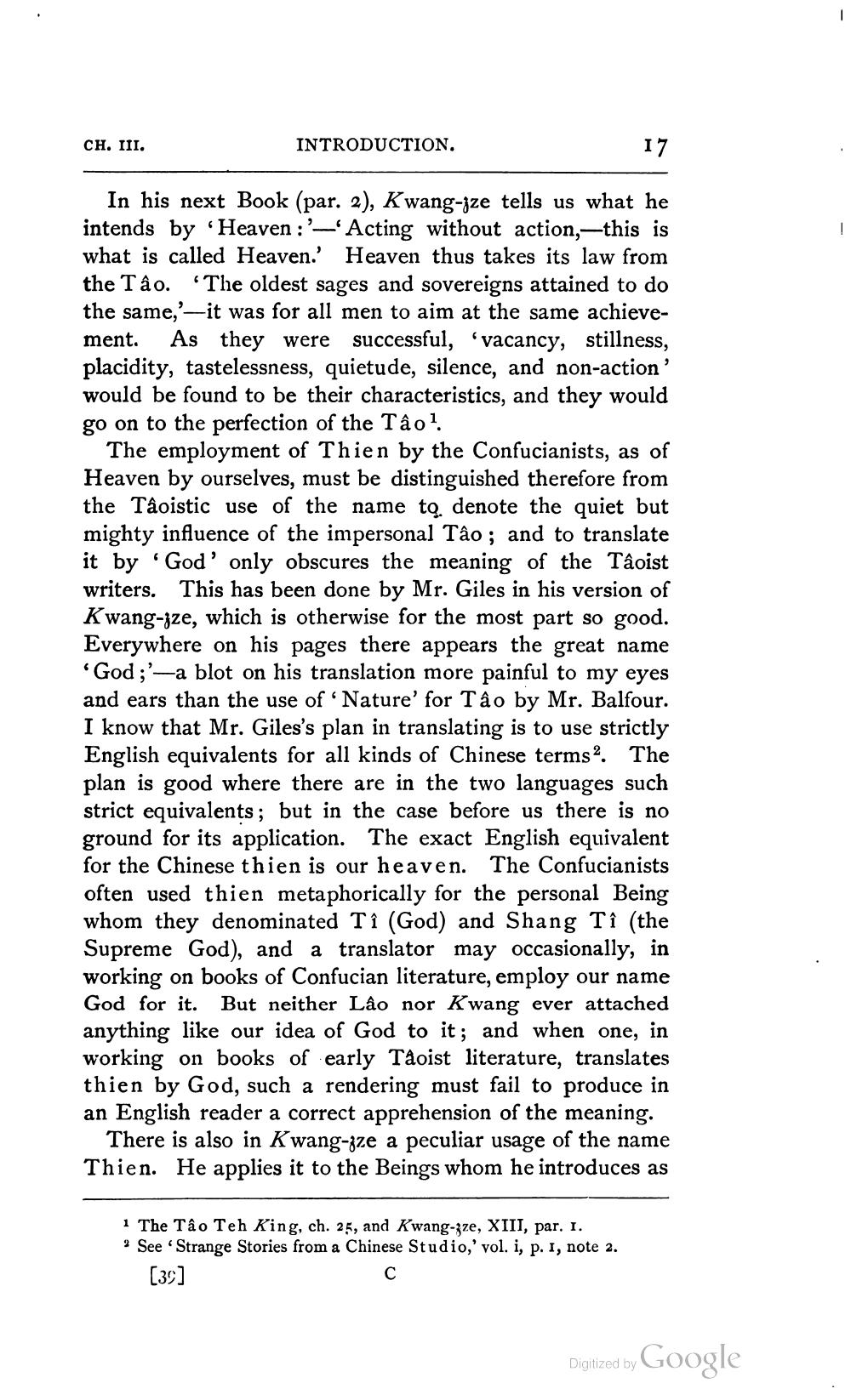________________
CH. III.
INTRODUCTION.
17
In his next Book (par. 2), Kwang-jze tells us what he intends by 'Heaven :'-'Acting without action,—this is what is called Heaven.' Heaven thus takes its law from the Tâo. "The oldest sages and sovereigns attained to do the same,'—it was for all men to aim at the same achievement. As they were successful, vacancy, stillness, placidity, tastelessness, quietude, silence, and non-action' would be found to be their characteristics, and they would go on to the perfection of the Tâo?
The employment of Thien by the Confucianists, as of Heaven by ourselves, must be distinguished therefore from the Taoistic use of the name to denote the quiet but mighty influence of the impersonal Tâo; and to translate it by 'God' only obscures the meaning of the Taoist writers. This has been done by Mr. Giles in his version of Kwang-gze, which is otherwise for the most part so good. Everywhere on his pages there appears the great name 'God;'-a blot on his translation more painful to my eyes and ears than the use of Nature' for Tâo by Mr. Balfour. I know that Mr. Giles's plan in translating is to use strictly English equivalents for all kinds of Chinese terms. The plan is good where there are in the two languages such strict equivalents; but in the case before us there is no ground for its application. The exact English equivalent for the Chinese thien is our heaven. The Confucianists often used thien metaphorically for the personal Being whom they denominated Tî (God) and Shang Tî (the Supreme God), and a translator may occasionally, in working on books of Confucian literature, employ our name God for it. But neither Lào nor Kwang ever attached anything like our idea of God to it; and when one, in working on books of early Taoist literature, translates thien by God, such a rendering must fail to produce in an English reader a correct apprehension of the meaning.
There is also in Kwang-zze a peculiar usage of the name Thien. He applies it to the Beings whom he introduces as
1 The Tâo Teh King, ch. 25, and Kwang-zze, XIII, par. 1. ? See 'Strange Stories from a Chinese Studio,' vol. i, p. I, note 2.
[35]
Digitized by Google




